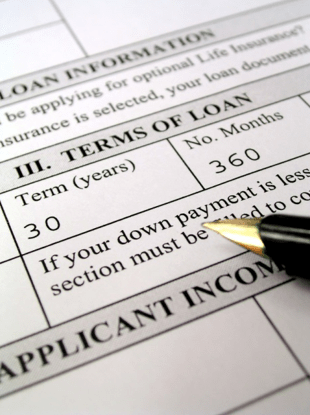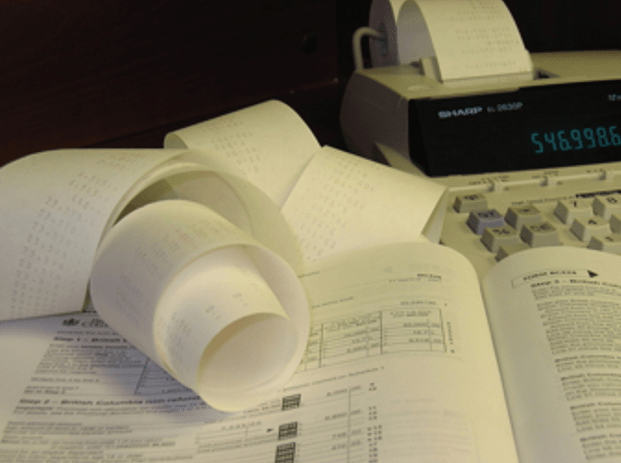Guide: How to Find the Cheapest & Lowest Mortgage Rates
If you are in the process of buying a house, chances are you are looking for ways to save money. Part of getting a great deal is negotiating a low selling price on the home, and part of it is finding the lowest mortgage rates available.
If you want low mortgage rates, you have to know how to position yourself ahead of time and where to look. We will show you how to find the cheapest mortgage rates available as well as how low mortgage rates affect your bottom line.



Image Source: Cheapest Mortgage Rates
Lowest Mortgage Rates
Finding the lowest home loan interest rates can be tricky since several factors play a part, including:
- State where consumer is seeking a loan
- Borrower’s financial situation, such as their credit score and down payment
- Outside factors such as the housing market, inflation, and government monetary policy
Fluctuations in mortgage rates can sometimes make it difficult for consumers to compare mortgage deals.
You can begin your search for the lowest mortgage interest rates at a website like Bankrate.com where you start by clicking on your state to see the current rates based on the type of loan.
See Also: Home Interest Rates | Tips for Finding the Best Home Mortgage Interest Rates
Before You Shop for Low Mortgage Rates
According to Consumer Reports, we are seeing some of the lowest historical mortgage rates, with most economists believing they will stay that way. Cheap mortgages equate to more people in the market to buy or refinance a home.
How can you, as a consumer, get the lowest mortgage interest rates possible? Believe it or not, much of the work to secure the lowest home loan rates happens before you even begin to compare mortgage deals. You must have your finances in order before any lender will consider offering you low mortgage rates.
1. Boost Your Credit Score
People with the highest credit scores secure the lowest home mortgage rates. Bankrate.com states that a person with a credit score of 740 or higher will receive the lowest mortgage rates, and those with credit scores under 620 will have a difficult time qualifying for a mortgage at all.
Mortgage offers to customers at the high and low end of the credit spectrum can vary by as much as a full percentage point and a half. That difference can mean higher montly payments and multiple thousands of dollars over the life of the loan.
You will want to pull your credit score before any prospective lenders do to see if there are areas you need to shore up before you apply. You can check your credit report at Annual Credit Report, and you can check your credit score at Freecreditscore.com.
To boost your credit score:
- Eliminate credit card balances and other revolving credit
- Pay your bills on time
- Avoid applying for unnecessary credit
2. Save Money for a Down Payment
The more money you have for a down payment, the more options you have when shopping for the lowest mortgage rates. The more cash you have on hand, the more mortgage offers you will receive and the more lenders will be willing to negotiate with you for low rate mortgages.
Securing the lowest home mortgage rates is directly tied to how much risk you pose to the lender. Having money on hand for a down payment and closing costs shows the potential lender that you are a good risk.
Down payment amounts vary but usually range from 5%-20%, according to Bank of America. The amount you put down on a home not only affects whether or not you get the lowest mortgage interest rates available, but also whether or not you need private mortgage insurance (PMI.)
Don’t Miss: How to Find the Highest Savings Account Rates | This Year’s Guide | Highest Savings Rates
3. Figure Out What You Can Afford
Before you shop for cheap mortgages, it’s important to know what you can reasonably afford. Use a mortgage calculator that takes into account the home value, loan amount, how many years for the loan, property tax, and private mortgage insurance.
4. Learn How to Compare Mortgage Deals
Nothing is worse than meeting with a bank or mortgage lender and not understanding what they are talking about. If you’re a first-time home buyer, you need information on how to compare mortgage deals and a knowledge of historical mortgage rates. You also need to know the basic process for securing financing.



Image Source: Cheap Mortgage Deals
Familiarizing yourself with the terminology used in mortgage financing will also help you be an informed borrower. You need to know the difference between an adjustable rate mortgage (ARM) and a fixed rate mortgage. You need to understand all the fees involved in closing costs and other ways that lenders make their money.
Also, be prepared to show documentation of your financial situation. Documents needed to secure low rate mortgages include:
- Recent paycheck stubs
- W-2 forms for the last two years
- Tax returns for up to 2 years
- Bank statements
- Other real estate holdings
- List of debts and assets
- Canceled checks for current mortgage or rent payments
Remember, the prospective lender wants to get a complete financial picture. Though you won’t need the paperwork while you are still trying to compare mortgage deals, it’s still good to start gathering all the paperwork for when the time comes. The more prepared you are going in, the easier the process will be.
Related: Money Market Interest Rates | Ways to Find the Best Money Market Rates
All-in-One Change Management Tools
Top Rated Toolkit for Change Managers.
Get Your Change Management Tool Today...
Factors to Consider Besides Low Mortgage Rates
- Term: Today, 15- and 30-year mortgages are the most common terms. A 15-year fixed rate mortgage will generally allow you to pay less interest overall because you’re only paying interest for half the time compared to a 30-year mortgage. While your monthly payments are going to be higher — even with low rate mortgages — you will generally save money.
- Closing costs: Getting the lowest home loan rates doesn’t automatically equate to cheap mortgages. Lenders can make money through loan origination fees and points. Other closing costs include appraisal fees, taxes, and credit report charges, among others. Make sure to ask the lender exactly what each cost is for so you understand all the fees.
- Prepayment penalties: Some mortgage loans, including low rate mortgages, carry a penalty if you pay it off before the term is up. If you sell or refinance your home before the loan term is finished, a penalty will be assessed.
When comparing mortgage offers, you must be familiar with all the costs associated with the loan. Know what you can afford in the future as well as right now.
Where to Find Mortgage Lenders
There are several places you can shop for cheap mortgages, such as banks, online lenders, and mortgage brokers.
Many people who are shopping for the cheapest mortgage rates for the very first time prefer the face-to-face contact that a brick-and-mortar bank can provide. Banks are a traditional source of mortgage funding and have name recognition, but they might not offer the lowest mortgage interest rates.
Online lenders offer a few benefits that brick-and-mortar banks don’t, namely convenience and an instant way to compare mortgage deals. What they often lack for people searching for cheap mortgages is personal interaction with a professional who cannot only answer questions but put the customer’s mind at ease.
The other option when looking for low rate mortgages is to visit a mortgage broker. What online lenders lack in personal service, mortgage brokers provide. According to Nerd Wallet, a mortgage broker acts as a middleman between the consumer and a potential lender. However, if finding a cheap mortgage is your first priority, you must keep in mind that mortgage brokers may charge about 1% of your loan amount.
Popular Article: Mortgage Interest Rates Trend | Key Mortgage Rate Predictions, Trends, and Graphs



How to Choose a Mortgage Lender
Remember, the mortgage lender with the lowest mortgage rates will not always be the best choice based on the loan term, closing costs, and other factors.
So how do you go about choosing a lender when there are so many options available?
Research online: Within minutes you can find out who has the best customer ratings for fees, service, and overall satisfaction.
Talk to your bank: It pays to find out what your local bank is willing to do for their own customers. Because you’ve done your research ahead of time, you will know whether or not their terms are competitive or if you need to continue to compare mortgage deals elsewhere.
Get referrals: Many real estate professionals know who the best local lenders are, and who gave their customers the best experience. You can also talk to friends and coworkers who may have recently purchased a home and found the lowest home mortgage rates.
Communicate: Talk directly to a mortgage professional about their mortgage offers and what their process is. While they might be offering the lowest mortgage rates, you still need to be comfortable and have confidence in the lender.
Once you have considerably narrowed your choices based on who has the lowest mortgage rates, there are other questions to ask:
- When can I lock in this interest rate?
- What are your closing costs?
- Am I paying origination points?
- What is the prepayment penalty, if any?
- How will the amount of my down payment affect the low mortgage rates?
- What kind of documents do I need to gather for the loan process?
- How long will the loan process take?
Never be afraid to communicate and ask questions, even before you officially begin the loan process. Remember, a home is likely the largest purchase you will ever make, and even with low mortgage rates, a home is a big financial investment.
Best Rated Mortgage Companies
When you’re shopping for the cheapest mortgage rates, you want to work with lenders that have a good reputation. Even if you get referrals from people you know and trust, the lender might not be the best fit for you because your financial situations might be different.
By doing some research on low rate mortgages online, you can look at reviews. Consumer Affairs lists the following as their top 12 mortgage companies:
- First Internet Bank
- Caliber Home Loans
- Jersey Mortgage Co.
- Prospect Mortgage
- AmeriSave Mortgage Corporation
- Nationstar Mortgage
- Lending Tree
- Ocwen Financial Corp.
- Network Capital
- Quicken Loans
- Guaranteed Rate
- Gateway Mortgage
While none of these mortgage companies are one-size-fits-all, including highly rated lenders in your search for the lowest home loan interest rates can help you feel more at ease.
When shopping for the lowest home loan interest rates, make sure to take your time. By thoroughly researching all your options, you will find not only the cheapest mortgage rates that you can qualify for but also the best overall terms.
Your home will likely be the largest financial investment you make. Finding the lowest home mortgage rates and choosing your mortgage lender wisely will help make home ownership a joy instead of a burden.
Read More: How to Find the Best VA Mortgage Loan Rates Today | Tips for U.S. Veterans
AdvisoryHQ (AHQ) Disclaimer:
Reasonable efforts have been made by AdvisoryHQ to present accurate information, however all info is presented without warranty. Review AdvisoryHQ’s Terms for details. Also review each firm’s site for the most updated data, rates and info.
Note: Firms and products, including the one(s) reviewed above, may be AdvisoryHQ's affiliates. Click to view AdvisoryHQ's advertiser disclosures.



